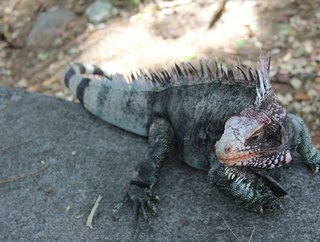How YSL Beauty & Re:wild are Revitalising Nature

Part of the L’Oreal Group, YSL Beauty is a luxury brand encompassing the iconic style of fashion legend Yves Saint Laurent, founder of the fashion house created in 1961. Commitment to the environment is at the heart of the brand.
YSL Beauty’s social and environmental commitments – known as ‘Change the Rules, Change the Future’ – come under three lead programmes:
- Abuse is not love – to prevent and fight against intimate partner violence in partnership with non-profit organisations.
- Rewild our earth – to protect and restore the environment in partnership with Re:wild
- Reduce our impact – to reduce its use of natural resources and offer more sustainable products.
Rewilding for global impact
Nature is suffering – almost 75% of all wild places have been degraded and more than one million species are at the brink of extinction. YSL Beauty has partnered with Re:wild to attempt to claw back some of the estimated 50% of remaining wild set to disappear in the next few decades.
Since 2017, YSL Beauty’s Rewild Our Earth initiative has protected and revitalised 47,351 hectares worldwide and supported local partners in planting more than 422,000 trees. Next up? The partnership aims to protect and restore 100,00 hectares of wilderness by 2030 – a surface area that is almost 10 times the size of Paris.

“The health of our planet and our well being depend on the wild; we are all connected to the natural world,” says Penny Langhammer, Executive VP of Re:wild.
“Through this long-term collaboration with YSL Beauty, we will advance our efforts to protect and restore the Earth’s most irreplaceable areas for diversity.”
The next projects that the collaboration is focussing on are in the Bahamas and Colombia. among the most threatened natural zones in the world.
The two areas will benefit from protection and rewilding of diverse natural ecosystems essential for the planet’s biodiversity, and for local wildlife.

- One of the most endangered lizards on the earth
- Approximately 150 species left
- Lives in the White Cay wetlands, in the Bahamas
By working with local communities and partners to develop species conservation action plans and support restoration methods tailored to local context and capacity, the programme aims to support wildlife – including the White Cay Iguana, which is currently critically endangered.
The programme and its methods will be monitored and evaluated to share key learnings with other islands working to conserve related iguanas.
******
Make sure you check out the latest edition of Sustainability Magazine and also sign up to our global conference series - Sustainability LIVE 2024
******
Sustainability Magazine is a BizClik brand
******






